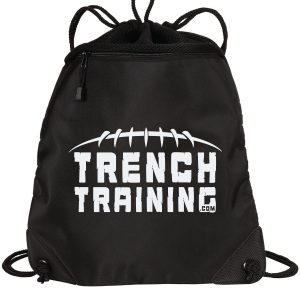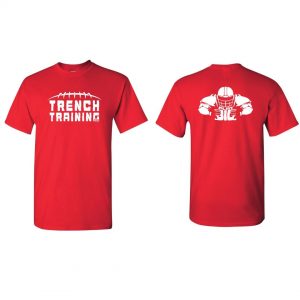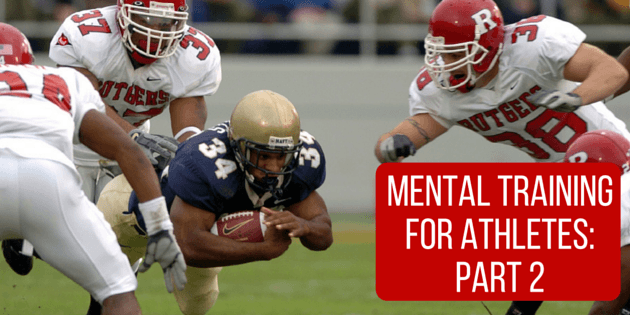
by Steve Stark | Apr 9, 2016 | Blog, training
The second part of Mental training is all about performance.
The information I am focusing on in this article is based on research by Dr. Jack Lesyk’s and his article on Sportpsych.org.
Dr. Jack Lesyk, Ph.D. Uses a performance chart that makes a lot of sense to me in how you become a high performing athlete.
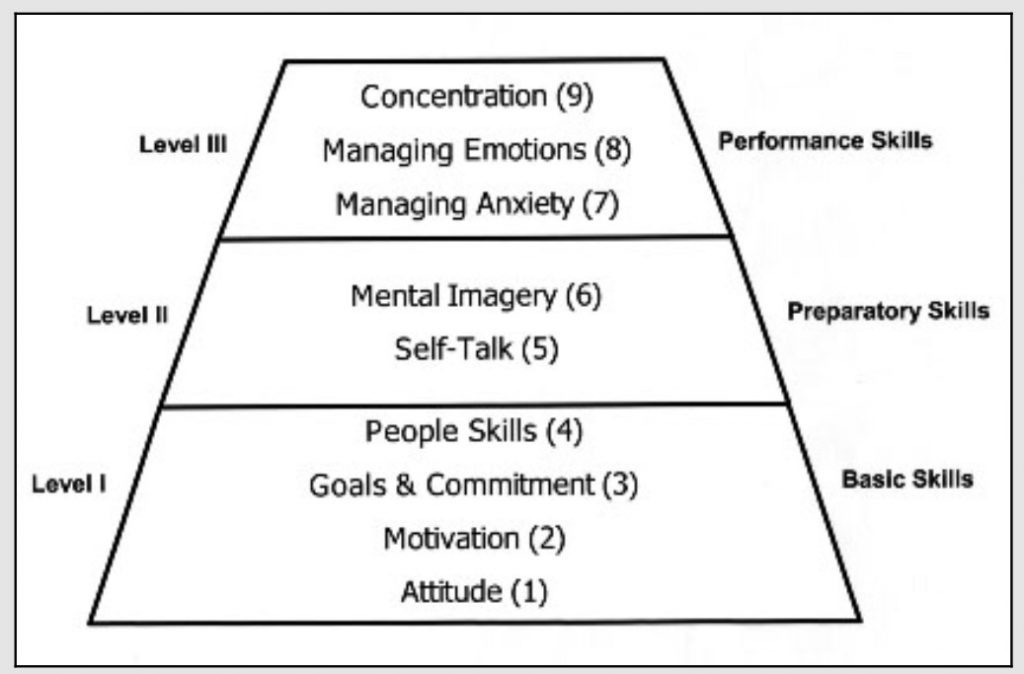
His pyramid describes the levels that an athlete must move through to become a high functioning athlete.
I agree that there are short and long term phases in athletics.
Many of the athletes struggle with their talent because their emotions are not able to handle the competition.
It has nothing to do with their skill or talent but all to do with handling their emotions. This is level 3.
Mental Training for Athletes: The Performance Pyramid
Although each of the nine skills is important, its primary importance will occur during one of three phases: long-term development, immediate preparation for performance, and during performance itself.
Level I
These mental skills constitute a broad base for attaining long-term goals, learning, and sustaining daily practice.
They are needed on a day-by-day basis for long periods of time, often months and years.
Level II
These skills are used immediately before performance to prepare for performance.
They maybe used just before competition begins, or immediately before a specific performance action, such as a golf shot or a free throw in basketball.
Level III
These skills are used during actual performance behavior.
Spending time on These 9 Mental skills will help you attain the level III in athletics.
Detailed Descriptions of the Nine Mental Skills
1. Attitude
Successful athletes:
- Realize that attitude is a choice.
- Choose an attitude that is predominately positive.
- View their sport as an opportunity to compete against themselves and learn from their successes and failures.
- Pursue excellence, not perfection, and realize that they, as well as their coaches, teammates, officials, and others are not perfect.
- Maintain balance and perspective between their sport and the rest of their lives.
- Respect their sport, other participants, coaches, officials, and themselves.
Choice is the key word . Many athletes don’t realize that they can choose how they think. This is something that everyone can do! Viewing life as an opportunity as opposed to a right. We are not owed anything. When we realize this it makes a huge difference in our level of anxiety and stress. The less stressed and anxious we are the better we perform! Respecting the game, the coaches, other players, and yes, the parents that haul you around and buy your gear, is so important in helping you move towards your goals of being great!!
2. Motivation
Successful athletes:
- Are aware of the rewards and benefits that they expect to experience through their sports participation.
- Are able to persist through difficult tasks and difficult times, even when these rewards and benefits are not immediately forthcoming.
- Realize that many of the benefits come from their participation, not the outcome.
Consequences and rewards are a great motivational tool to use on yourself. Coaches and parents will use their own methods of rewards and consequences but it is important for you to come up with your own appropriate consequences and rewards system.
3. Goals and Commitment
Successful athletes:
- Set long-term and short-term goals that are realistic, measurable, and time-oriented.
- Are aware of their current performance levels and are able to develop specific, detailed plans for attaining their goals.
- Are highly committed to their goals and to carrying out the daily demands of their training programs.
I talked in depth about this in the previous article. Goals are very important and paying attention to progress is a big part of this.
4. People Skills
Successful athletes:
- Realize that they are part of a larger system that includes their families, friends, teammates, coaches, and others.
- When appropriate, communicate their thoughts, feelings, and needs to these people and listen to them as well.
- Have learned effective skills for dealing with conflict, difficult opponents, and other people when they are negative or oppositional.
Sometimes athletes are not real social. This does not mean that they do not have people skills. They may have very good skills but choose to use them sparingly. There is nothing wrong with this type of athlete and I have seen many who go on to play at a high level. The key is for them to understand what is going on around them. They can’t allow others to affect their emotions. Learning to deal with conflict, loss and adversity is key to helping an athlete perform at his or her best.
5. Self-Talk
Successful athletes:
- Maintain their self-confidence during difficult times with realistic, positive self-talk.
- Talk to themselves the way they would talk to their own best friend
- Use self-talk to regulate thoughts, feelings and behaviors during competition.
Another skill that I mentioned in previous article that I feel is very important as well.
6. Mental Imagery
Successful athletes:
- Prepare themselves for competition by imagining themselves performing well in competition.
- Create and use mental images that are detailed, specific, and realistic.
- Use imagery during competition to prepare for action and recover from errors and poor performances.
7. Dealing Effectively with Anxiety
Successful athletes:
- Accept anxiety as part of sport.
- Realize that some degree of anxiety can help them perform well.
- Know how to reduce anxiety when it becomes too strong, without losing their intensity.
I think this is one of the most important skills and it is overlooked by many coaches, parents and athletes. Fear is another name for anxiety. Fear can cripple an athlete. It can keep an athlete from being able to perform or even function. This skill is VERY Important to look at because there is so much to learn about what and where fear comes from. Fear also is something that you can choose to overcome by working on it. I would suggest, to any young athlete, that they spend a lot of time learning what fear really is and how to overcome it.
8. Dealing Effectively with Emotions
Successful athletes:
- Accept strong emotions such as excitement, anger, and disappointment as part of the sport experience.
- Are able to use these emotions to improve, rather than interfere with high level performance
This is often a misunderstood skill and also one that does not typically get talked about by coaches and athletes. I believe emotions are not talked about because many athletes have fear that it will make them look weak. The truth is that this skill will make them strong beyond their understanding.
9. Concentration
Successful athletes:
- Know what they must pay attention to during each game or sport situation.
- Have learned how to maintain focus and resist distractions, whether they come from the environment or from within themselves.
- Are able to regain their focus when concentration is lost during competition.
- Have learned how to play in the “here-and-now”, without regard to either past or anticipated future events.
Please feel free to message us if you have questions or require more information about any of our post topics.
We want to help you and your athlete become better at both the physical and mental aspects of sport.
At Trench Training we also have sports life coaches available for you to work with if you are looking for some extra help.
Play Big!

Coach Glenn
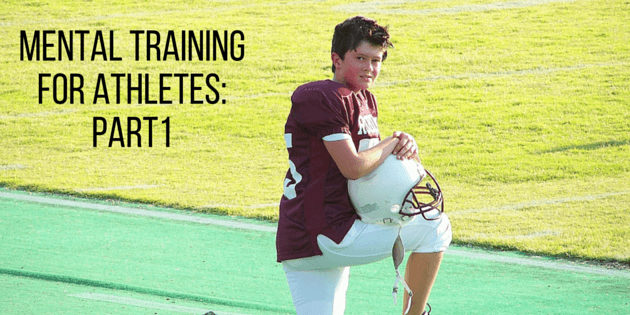
by Steve Stark | Mar 29, 2016 | training
As a coach it’s important to not only teach the physical skills of the game but also to provide mental training for athletes.
Mental training for athletes can have a huge impact on their success in sports and in life.
I recently read an article by Jack Lesyk from the Ohio Center for Sport Psychology and found it very interesting and I am going to do two articles regarding this.
This article with focus on the skills of successful athletes.
The second one will discuss Dr. Lesyk’s performance pyramid.
In these two articles you will learn about mental training for athletes and how to prepare for your sport.
Here’s my take on Dr. Lesyk’s 9 mental skills.
The Nine Mental Skills of Successful Athletes
1. Choose and maintain a positive attitude.
In the first skill “Choose and maintain a positive attitude.’ it is imperative to recognize the key word in this statement; “Choose”.
We all have the ability to make choices in our day.
By getting up in the morning and choosing to have a positive attitude will make your workouts, your struggles, your daily routine much more productive and with this attitude you will enjoy your tasks much more.
Athletes do much better when they are enjoying what they do than those that force themselves to do it.
2. Maintain a high level of self-motivation.
The skill of “Maintaining a high level of self-motivation” is a skill that requires work.
This is what I believe will set the good athletes apart from the GREAT athletes.
As a coach I would prefer to work with an athlete that has high self motivation and less talent over an athlete with great talent and low motivation any day.
Why is this?
In every level of sport that I have played and coached I have seen countless athletes with less ability outplay those around them with more talent.
If you maintain self motivation on a high level you have a great chance of becoming a very successful athlete!
3. Set high, realistic goals.
Many times we set goals that either aren’t challenging enough or goals that are unrealistic.
It is very important that you do not take this skill lightly.
I recommend you get help in this area from someone who understands the importance of setting high, but realistic goals.
Many times our mind (from past messages we received from caretakers and mentors growing up) tells us that we will never reach the goals we set.
We will say things like “that is too difficult to do”, “I am not good enough” or “they are better than me and that is why they can do that”.
Our mind is only using a very small percentage of its ability.
I learned in sports how to push through things that I never thought were possible and now in business I am learning the same thing.
We can reach high goals.
Let that sink in.
“We” meaning all of us, can reach high goals!!
However, if set unrealistic or unattainable goals all the self-motivation in the world won’t sustain your effort.
Find coaches, mentors or counselors to help you set effective goals!
4. Deal effectively with people.
The skill of “Dealing effectively with people” is a skill that will help you throughout your life to find and keep the right people in your camp.
Many talented athletes do not pay enough attention to this skill and that is why they end up unhappy, in trouble, or losing their careers, spouses and money.
Learning this skill takes a lot of practice and patience.
It will require you to get and maintain compassion for others.
Once you are able to understand how important this skill is it is amazing how much better your communication with others will become.
This will set you up as a leader on your team and help you to be able to enhance your communication skills as a player and teammate.
5. Use positive self-talk.
I used to think this skill was BS. 🙁
It would have been nice to learn the importance of this skill early on because I know it would have helped me tremendously if I was able to use positive self-talk.
Only after I was successful did I learn to use this skill and it was typically followed up with “I could have done better”.
To this day it is something that I have to work on a daily basis to help alleviate the chatter and noise of negative comments that go on in my head.
As with any skill this is one that you have to practice.
You have to practice it when you are alone and you have to practice this when you are with others.
You WILL fail and it will make you mad when you do but if you do not fail you will not learn.
Many times I leave a conversation and I will run through the conversation in my head.
I will think of the things that I might have said that would make it more positive.
It is amazing how long I have been doing this and I still make mistakes and have to learn how to re-do my statements.
6. Use positive mental imagery.
I love the skill of using positive mental imagery.
I am a dreamer and I enjoy spending time dreaming or using mental imagery in my day.
When I played I used to spend a lot of my game preparation imagining the blocks that I would make.
I would imagine running into the game, seeing the player that I watched on film line up across from me.
I’d envision the his best and what I was going to do to counter that move.
I would typically have music blasting in my ears and would go over it and over it and over it.
Many times I would be in a game and the music would all of a sudden be in my head and the moves he made would actually slow way down and I would know exactly what to do.
This is a great skill to have. and I would highly recommend you spending time learning this skill.
7. Manage anxiety effectively.
We all have anxiety!!
Many of us do not realize what anxiety is and how it affects us.
For me anxiety can better be described as fear.
When I have a fear or anxiety about something it can be a struggle to keep my emotions under control.
However, once I recognize this as a fear and am able to find out where it is coming from my anxiety goes away.
This is not an easy skill and takes a lot of work to master.
It helps to work with a professional coach or counselor if you are struggling to overcome anxiety.
I have seen athletes with a ton of talent and ability that are frozen by anxiety.

There is nothing wrong with having nerves or emotions running high before a big game.
That is completely normal.
Successful athletes learn to effectively manage their anxiety.
You have all seen a big moment where a player makes a phenomenal play to win a game.
Great athletes learn to manage their anxiety in difficult situations.
They are able to channel that anxiety, slow the game down in their head and make unbelievable plays on a regular basis.
8. Manage their emotions effectively.
Managing emotions is a skill that many overlook, and I believe misunderstand.
I have gone through many hours of counseling to try to manage my anger and sadness in my life.
In order to overcome anger or sadness I learned that instead of managing emotions, it works much better to embrace and own the emotion.
Once I was able to be embrace the anger as a sign that that I need to make a change I became motivated to move forward towards my goals instead of feeling paralyzed by the emotion.
Again, a coach or counselor that is trained in empowering emotions can help you with this skill.
Once you are able to empower your emotions it is amazing what changes you can make in your athletic career!
9. Maintain concentration.
Maintaining concentration was, and still is, a difficult skill for me personally.
Concentration is the skill that helps you to stay focused on your journey to achieve goals.
Lack of concentration can delay this journey.
This is another skill that has to be developed with practice and work.
Listening and concentrating are skills that will help you throughout your life.
It is an internal skill that repetitive practice will help but some people practice very hard at it and yet they still struggle with concentrating.
Finding your passion helps your concentration.
Let’s be honest, if you don’t enjoy what you are doing then it is much more difficult to focus.
I have found that the more passionate I am about the subject the easier it is to concentrate.
If you are an athlete and your passion for the sport is not there then it’s going to be difficult for you to concentrate at level that will bring success.
Some athletes are in sports that they are not passionate about because they are very talented at that sport.
I believe that athletes that are passionate about their sports and are happier participating work harder.
Concentration is a skill that help you make the leap from a good athlete to a great athlete!
These are all skills that will serve you in life as much as they will in sports.
Be sure to take them seriously and work on creating the best possible version of YOU.
Our mission at trenchtraining.com is to help athletes gain the skills necessary to play at a high level.
We also want to foster great attitudes and help with the mental aspect of the game.
I recently became certified as an emotional empowerment coach and feel that this training can have a huge impact on young athletes.
If you would like to learn more about about mental training for athletes please contact me at glenn@trenchtraining.com.
Look for the second part of this topic next week when I discuss Dr. Lesyk’s performance pyramid.
Until then have a great week!
Work Hard, Play Big!

Coach Glenn






